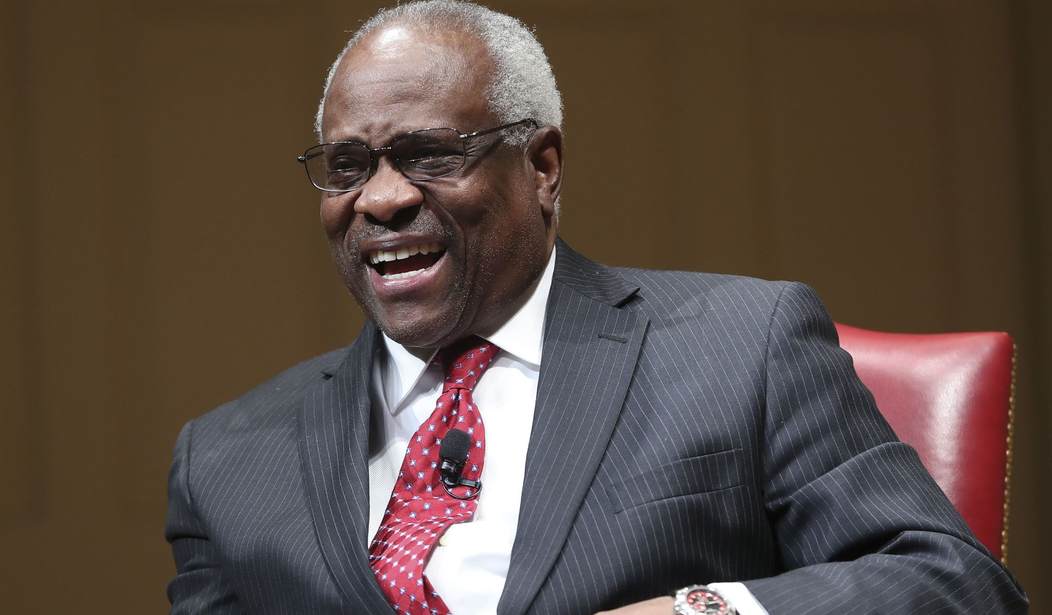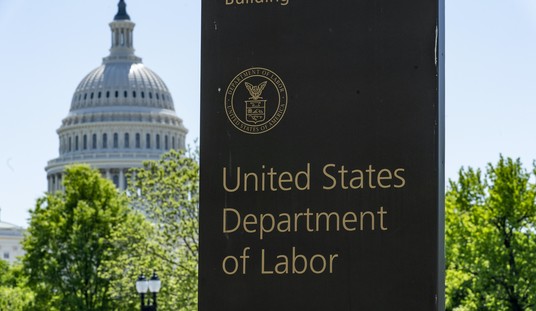The Supreme Court heard arguments Wednesday in two related cases challenging a 40-year-old precedent that requires courts to defer to the judgment of federal agencies in administrative law cases. At the end of three-and-a-half hours of arguments, a majority seemed disposed to overturn Chevron vs. Natural Resources Defense Council, and consign the so-called "Chevron deference" principle to the compost heap of terrible Supreme Court precedents.
Ever since the creation of the administrative state during the administration of our first socialist president, Franklin D. Roosevelt, federal agencies have assumed the authority to interpret federal statutes pretty much as they please. This became legal precedent in 1984 with the Chevron vs. Natural Resources Defense Council decision. The decision reads, in part:
When a challenge to an agency construction of a statutory provision, fairly conceptualized, really centers on the wisdom of the agency's policy, rather than whether it is a reasonable choice within a gap left open by Congress, the challenge must fail. In such a case, federal judges—who have no constituency—have a duty to respect legitimate policy choices made by those who do. The responsibilities for assessing the wisdom of such policy choices and resolving the struggle between competing views of the public interest are not judicial ones ....
— Chevron, 467 U.S. at 866
Where this decision falls short is the assumption that agencies base their decisions on "wisdom" rather than the raw acquisition of power, and that they are any more responsive to a "constituency" than a federal judge.
Chevron sets up a two-stage test. If the law permits an action, the agency has carte blanche to do whatever it wants. If the law is ambiguous, the courts can review the agency's decision to determine if the resulting regulation was a possible way to go about enforcing the law. If so, the courts lose their ability to interfere.
While rule by "philosopher kings" or Old Testament judges may sound brilliant to your typical statist, the reality is much uglier.
The two cases, Loper Bright Enterprises vs. Raimondo and Relentless, Inc. vs. Department of Commerce that started this Supreme Court argument are prime examples of the danger Chevron poses to a free society.
BACKGROUND
In 1972, Congress passed the Magnuson-Stevens Fishery Conservation and Management Act, "to respond to the threat of overfishing and to promote conservation.” As part of that law, eight regional fisheries councils were created. Each of those councils, which is a business association, is charged with producing a fisheries management plan. Under the plan created for New England herring fisheries, half of all fishing trips had to carry a federal monitor. Originally, all the observers were employed by the federal government. Somehow, the National Marine Fisheries Service managed to lose money from its budget as the rest of the federal government porked up. In 2020, the management plan required the fishing boats to pay for monitors reporting to the federal government. The cost was over $700. Many fisheries complained that this additional expense resulted in zero profit or even a loss for a day's fishing.
Congress didn't authorize billing private fishing companies to pay for federal monitors. But the Department of Commerce interpreted the requirement that it may “require that one or more observers be carried on board a vessel of the United States engaged in fishing for species that are subject to the plan, for the purpose of collecting data necessary for the conservation and management of the fishery,” to mean that half the fishing boats had to carry deadweight that they paid for.
LEGAL MANEUVERS
Two of the companies sued. This brings us to the pernicious nature of Chevron. The district court and appeals court said, "Well, the law is ambiguous, and making those swine pay for their monitors is one way of doing it; sounds good to me, and what time is the limo picking us up for lunch?" in essence, there was no interest in the injustice of taxing private fishermen to pay to do the government's job.
TODAY's ARGUMENTS
RedState and Chevron Deference
SCOTUS Grants Review of Case That Will Gut the Federal Bureaucracy
The Chevron Doctrine: Will the Supreme Court's Ruling Protect Liberty?
US Supreme Court May Be About to Dramatically Scale Back Federal Regulatory Powers
When things go pear-shaped for progressive causes, like fiat rule by unelected bureaucrats, my go-to source is the Jack-Russell-on-meth who covers the Supreme Court for Slate...if Slate can be said to cover anything...and that would be Mark Joseph Stern. This is from The Supreme Court Is About to Seize Way More Power From Democratic Presidents.
And yet, throughout Wednesday’s arguments, the conservative justices condemned Chevron as some kind of anti-accountability chaos agent that sabotages good government. Justice Brett Kavanaugh, who dissed Chevron during his audition for SCOTUS, assailed the decision’s democratic traits as a bug, not a feature. “The reality of how this works,” Kavanaugh said, “is Chevron itself ushers in shocks to the system every four or eight years when a new administration comes in—whether it’s communications law or securities law, competition law or environmental law, it goes from pillar to post.” New administrations change policy, Kavanaugh continued, “because they have disagreements with the policy of the prior administration.”
...
The remaining conservative justices were less dogmatic but made little effort to conceal their distaste for Chevron. Chief Justice John Roberts and Justice Amy Coney Barrett played it straight at first, asking real questions that hinted at an understanding of the mess that’ll flow from Chevron’s demise. But by the end of arguments, both were hounding Prelogar with telltale complaints about the ostensibly arbitrary and power-drunk executive branch crushing the rule of law. Justices Clarence Thomas and Samuel Alito, who have gone on the record against Chevron, were only a bit subtler than Gorsuch and Kavanaugh. The writing’s on the wall of the marble palace, despite the liberals’ fierce fight.
Here’s the bottom line: Without Chevron deference, it’ll be open season on each and every regulation, with underinformed courts playing pretend scientist, economist, and policymaker all at once. Securities fraud, banking secrecy, mercury pollution, asylum applications, health care funding, plus all manner of civil rights laws: They are ultravulnerable to judicial attack in Chevron’s absence. That’s why the medical establishment has lined up in support of Chevron, explaining that its demise would mark a “tremendous disruption” for patients and providers; just rinse and repeat for every other area of law to see the convulsive disruptions on the horizon.
He also explains how the Supreme Court opting for liberty and due process is a bad thing. If the courts are going to monitor what the agencies are doing, then the agencies might not do anything.
Because SCOTUS is relentlessly hostile to the administrative state, this system stacks the deck in favor of deregulation. Which—let’s be honest—means boosting Republican presidents and hobbling Democratic ones.
A decision is expected in June, and I'll be off work for a month, getting drunk on liberal tears.













Join the conversation as a VIP Member